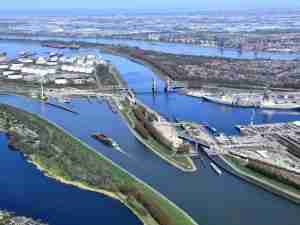For the second time in June, the Coast Guard has fruitlessly pursued a time-consuming, high-profile search, drawing away resources from an agency that protects the country's maritime interests. The agency responds to 64 search and rescue cases and saves an average of 12 lives a day, according to its website.
In the latest instance, the Coast Guard called off a search for what it believed were stowaways on a trans-Atlantic cargo ship after no one was found, officials said.
The vessel was impounded in Newark, New Jersey, after customs agents reported hearing sounds made by people coming from inside a container beneath a stack of several others in the ship's cargo hold, authorities said.
The ship, identified as the Cyprus-flagged vessel Ville D'Aquarius, was stopped at 3 a.m. EDT (0700 GMT) on Wednesday and searched for more than 18 hours with the help of X-ray machines and K-9 units.
Maria Haberfeld, professor of police science at New York's John Jay College of Criminal Justice, said the setback was unlikely to dent the Coast Guard's image.
"I'd rather have them react and waste money than not react and waste lives," Haberfeld said.
According to the ship's manifest, the suspicious container had been loaded onto the vessel on June 7 in India and was carrying machine parts bound ultimately for Norfolk, Virginia.
Coast Guard spokesman Charles Rowe said authorities determined the storage crate in question could not be opened in the hold, and instead began methodically unloading the ship's cargo in order to reach it. Some 163 containers were searched.
"The search has been concluded," Rowe said. "Nothing of significance was found. Port and ship have returned to normal operations."
Another search ended two weeks ago in what turned out to be a hoax. On June 11, a distress call was made to the Coast Guard reporting a yacht explosion 17 miles (28 km) off the coast of Sandy Hook, New Jersey, with 21 people having abandoned ship.
A large search that involved more than 200 people found nothing, costing the Coast Guard more than $300,000. Later, officials said the distress call was likely made over land, not sea.
On June 20, officials announced that they were examining ties between the New Jersey call and another distress call, later found to be a hoax, made on May 20 near Houston, Texas.
Haberfeld, of John Jay College, said the Coast Guard's proactive response in both cases was correct.
"It's very hard to verify whether a call is real, especially if the caller seems to know what they're talking about," she said about the hoaxes. (Reuters)









